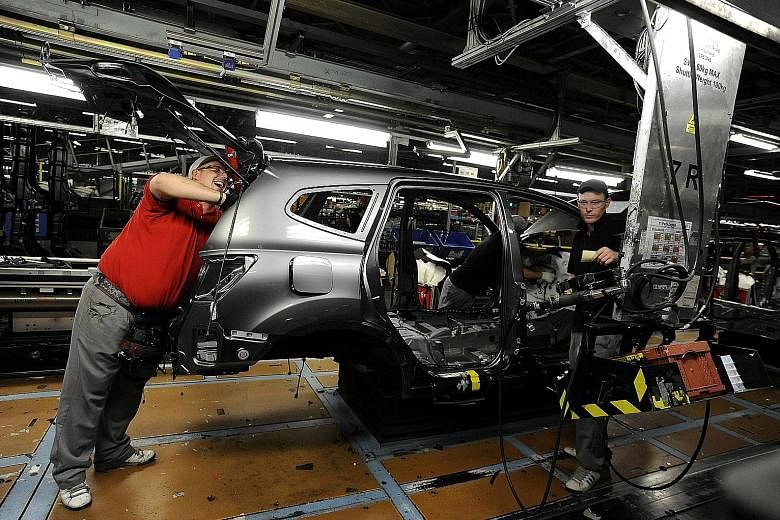The Brexit outcome is being blamed by many on the British government's failure over the years to cushion the costs of globalisation.
The story being written? That the winners of globalisation chose Remain, the losers chose Leave.
The Telegraph newspaper's analysis of the results, for instance, showed that voters with less wealth and education backed Brexit.
Brexit also resonated strongly with the UK's older generation, with areas that scored the highest anti-European Union votes having the greatest numbers of pensioners.
Britain's membership in an expanding EU meant it benefited from - but also had to handle the consequences of - the EU's "four freedoms": freedom of movement of goods, people, services and capital over borders.
In a commentary published in The Guardian, Mr Gordon Brown, Britain's prime minister from 2007 to 2010, argued that "the key lesson of Brexit is that globalisation must work for all of Britain".
And in Britain, industrial towns were hollowed out as manufacturing collapsed in the face of Asian competition, wrote Mr Brown.
"These towns are home to a disproportionate share of the semi- skilled workers who feel on the wrong side of globalisation and who opted to vote leave.
"Unable to see how globalisation can be tamed in their interests, they have, not surprisingly, become recruits to an anti-globalisation movement whose lightning rod is migration," he said.
Their difficulty in learning new skills and finding new jobs was not helped by the entry of EU workers willing to work long hours, in less than ideal conditions, for less.
THE SINGAPORE TAKEAWAY
Singapore has had similar debates on income inequality and immigration, says Institute of Policy Studies deputy director of research Gillian Koh.
Throughout the years, the People's Action Party Government has "worked towards taking the best policy ideas from the political right and left to strike a working balance in a broad centre", she says.
This means, for instance, being market-oriented while having the state actively ensuring that economic growth translates to social development, by heavily redistributing the benefits of growth.
There is the Workfare policy that supplements the income of low- wage workers, for example.
In taking this approach, difficult choices were made, says Dr Koh.
She points to how the Government decided to temper the growth rate of the foreign workforce.
It promotes productivity and innovation instead.
Though the policy is unpopular with business owners, especially small firms hit hard by the manpower crunch, the Government has made it clear it will not turn the foreign worker tap back on.
"The price continues to be paid to ensure that any sort of backlash against globalisation, market capitalism and immigration is mitigated even in a very small and open economy like ours," says Dr Koh.
Lately, the Government has also been making sure that people stay employable, so that they are not caught out as jobs shift elsewhere in the global economy.
The Manpower Ministry and its agencies have rolled out a slew of training programmes for those more vulnerable to rapid technological changes.
The SkillsFuture drive to help Singaporeans master skills also gives Singaporeans $500 a year in credits that can be used to pay for approved training courses.
What Singapore has to watch out for is "a danger of the dispossessed feeling very frustrated, that they have no hope for the future", as National University of Singapore political scientist Reuben Wong puts it.
For now, the poor in Singapore still have a better crack at improving their lives through the opportunities of meritocracy and the education system, says Associate Professor Wong, an associate fellow at the EU Centre in Singapore.
"Social mobility is higher in Singapore than in most European countries, but it's declining. We have to watch that our system gives avenues for the bottom fifth of the population to make it to the top."
Agreeing, UniSIM labour economist Walter Theseira argues that people must believe that ordinary citizens can benefit from globalisation and international openness if they work hard.
Otherwise, "no amount of public welfare spending will convince people that this is a good deal", he says.
"Most people prefer to earn a decent wage than to have money given to them because they lost their jobs from globalisation."


